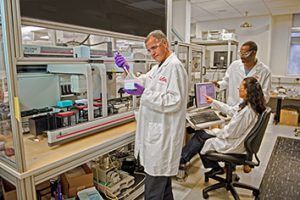Merck stops Alzheimer’s study after ‘no chance’ of benefit
Merck & Co. on Tuesday announced that it will end a study of its once-promising Alzheimer’s disease drug in patients with mild-to-moderate forms of the condition, just three months after Eli Lilly and Co. announced its own setback in a field that’s been littered with failures.




